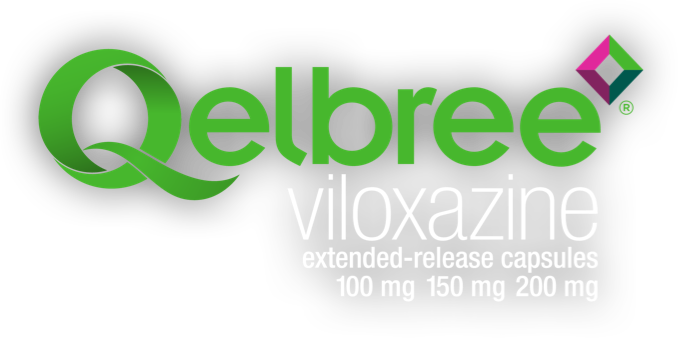
Real stories that help make ADHD more
relatable
Hear from other adults taking Qelbree for ADHD
It’s one thing to learn about ADHD—it’s another to live with it. Watch the videos below to hear from other adults living with ADHD, including their personal journeys to diagnosis and what’s changed since starting Qelbree.
Busy Philipps’ Story
“For me, Qelbree was the answer”
– Busy Philipps
As an actress, author, and mother of two, Busy Philipps found herself struggling to manage her daily tasks—but it wasn’t until her own daughter was diagnosed with ADHD that she discovered she was living with the condition, as well. After discovering Qelbree, hear how Busy is using her platform to help other women just like her better understand ADHD, and find the right treatment for them.
Jay Glazer’s Story
“My experience with Qelbree has inspired me to raise awareness”
– Jay Glazer
Before television personality and sports reporter Jay Glazer had his name in lights, he was a college freshman struggling with ADHD. Learn more about how Jay’s journey with ADHD led him to finding treatment with Qelbree.
Sam’s Story
“ADHD can be more manageable”
– Sam
When Sam entered the workforce as an adult, he experienced challenges with symptoms from ADHD. With the support of his healthcare provider, Sam found that ADHD can be more manageable with a diagnosis and treatment with Qelbree. Hear how Sam uses his experience to help others navigate ADHD treatment.
Amanda’s Story
“People didn’t really know I was struggling”
– Amanda
Though Amanda had struggled with ADHD symptoms most of her life, she reached a tipping point when the demands of work and motherhood felt like too much to manage. After discussing medication options with her doctor, Amanda finally found the treatment for her. See why Qelbree was such a turning point for Amanda, and how she’s progressed today.
Megan’s Story
“ADHD doesn’t have to control your life. It can be managed”
– Megan
From legal cases to laundry piles, Megan—a litigation paralegal—had always struggled to feel in control of her symptoms, now known to be from ADHD. Hear how her diagnosis at the age of 28 brought clarity to her struggles, and how non-stimulant Qelbree gives her the symptom support she needs to take control back.
Michele’s Story
“When I started Qelbree, the cloud lifted”
– Michele
From grade school to college to motherhood, Michele has felt the impacts of ADHD. But it wasn’t until her 10-year-old son was diagnosed with ADHD that she was diagnosed, too. Now they both take Qelbree for ADHD. Hear why starting treatment was such a turning point for Michele and her family.
Ashley’s Story
“Things can get better...keep pushing”
– Ashley
Despite having struggled with symptoms of ADHD since childhood, Ashley wasn’t officially diagnosed until she was an adult. Hear why having a diagnosis was so important for Ashley, and what sparked her treatment journey from stimulant medication to non-stimulant Qelbree.
David’s Story
“Qelbree gives adults with ADHD another option”
– David
When David started experiencing issues with his stimulant ADHD medication, he and his doctor knew it was time for a change. Hear how non-stimulant Qelbree helps manage David’s ADHD symptoms today, and what improvements he’s seen at work and at home.
Ready to talk to your doctor?
If you’re ready to ask about Qelbree, we’ve got your back.











